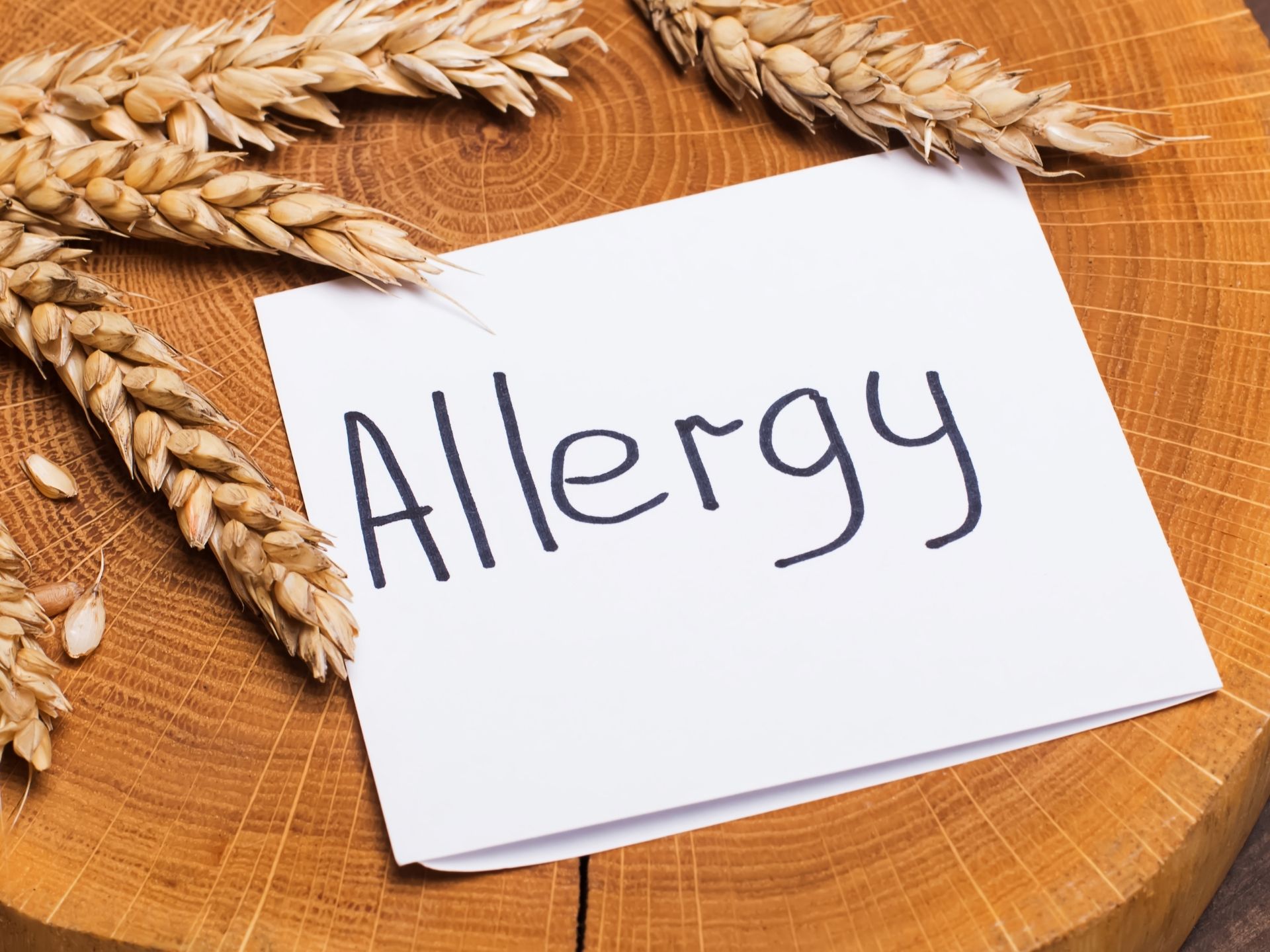Causes and risk factors
As the name suggest the clinical presentation are seen due to consumption of wheat in people who are sensitive to the proteins contained in the wheat. Wheat contents protein gluten. Any person who suffers from wheat allergy might be sensitive to gluten contained in the wheat. However it is necessary to differentiate it from gluten intolerance or celiac disease.The allergy can be of two types Antibody mediated or non antibody mediated allergy. Antibody medicated allergy effects are seen is seen within an hour or so after consumption of wheat. The reaction is of sudden onset. In non antibody mediated allergy adverse effects are seen after high consumption of wheat only. As like all other allergies it is an autoimmune reaction of the body.
Clinical presentation:
A person who is allergic to wheat can present with complaints of red eruptions (Urticaria) and itching of the body. Other symptoms like nausea, vomiting, pain in abdomen, flatulence, bloated feeling in abdomen and change in bowel movements like diarrhea or constipation can occur. The person can also come up with symptoms of respiratory affection like running of nose, running of eyes, cough, and wheezes. Irritation of mouth and possible swelling is also a common complaint seen. Although rare wheat allergy in some patients can also lead to life threatening condition of anaphylaxis.
Investigations:
Usually the patient himself overtime can identify the allergy to wheat .Diagnosis can be done on the basis of the symptoms narrated by the patients and the physical examination carried out by the doctor. The detail history taken from the patient will help the doctor to evaluate the cause. Routine blood test and allergy test can be recommended by the consultant.
Treatment:
As per doctors advised wheat and wheat products identified as a cause of allergy may be omitted from the diet. It can be substituted by other grains like barley, corn, bajra etc. For relieving the discomfort anti allergic medications are advised. Anti histamines and steroids have found to be effective. In cases of anaphylaxis hospitalization and close monitoring is required.
Other modes of treatment:
The other modes of treatment can also be effective in treating the complaints. Homoeopathy is a science which deals with individualization considers a person in a holistic way. This science can be helpful in combating the symptoms. Similarly the ayurvedic system of medicine which uses herbal medicines and synthetic derivates are also found to be effective in combating the sufferings.






























